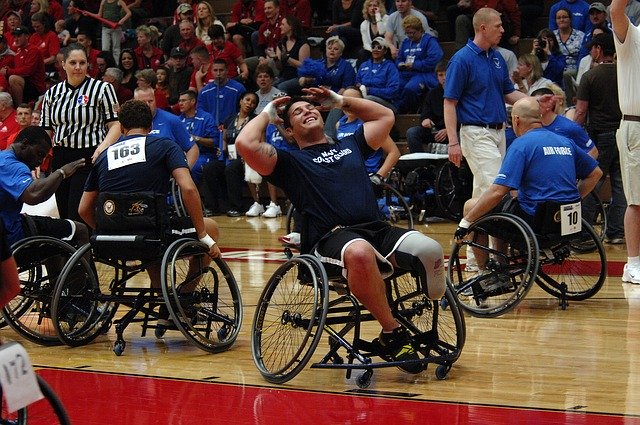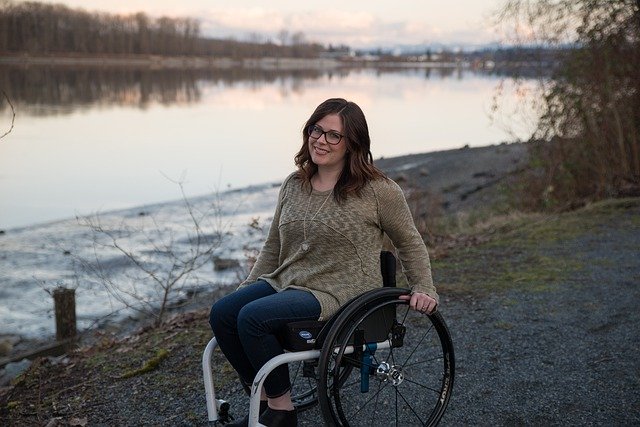
Americans with Disabilities Act
After reviewing the contents and elements of the Americans with Disabilities Act (ADA), I came to realize how this can positively affect and protect millions of American lives and livelihoods. Significant disabilities account for more than 12 percent of the US population. The ADA “prohibits discrimination on the basis of disability in employment, State and local government, public accommodations, commercial facilities, transportation, and telecommunications. It also applies to the United States Congress”.
Having an older brother with autism, my parents often worried about his future outlook in life. This act has directly affected my family in a favorable fashion to assist my brother, Nathaniel, is finding a job and expanding his pathway to a successful future. The Americans with Disabilities Act can protect people like my brother Nathaniel in their everyday lives. The scope of the ADA does not only allow people like Nathaniel a better opportunity in life but allows all those with disabilities an equal opportunity to grow.
More opportunities for disabled workers

Focusing on employment opportunities, this Act has come a long way in effecting modern employees in the workplace. People with disabilities have largely been unrecognized as a population for employment attention and recognition. Some people are born with a disabling condition or a development early on in life, while others acquire their disability through a chronic condition or an injury, or even develop a disability later in life. In other words, an individual can foresee their struggle in life to “fit in” with the mainstream world while with others it can hit them like a ton of bricks.
People with disabilities are a diverse group of individuals who all share similar experiences of living with significant limitations in functioning to their full potential, as a result, often experiencing exclusion from full participation in their communities. To combat issues like this, The Americans with Disabilities Act was signed into effect on July 26, 1990, by President George H.W. Bush. This allows employees with disabilities to participate in the mainstream of American life.
This act was modeled after the Civil Rights Act of 1964, which prohibited discrimination of race, sex, color, origin, and religion. While signing the ADA, Former President Bush stated “Many of our fellow citizens with disabilities are unemployed…. They want to work, and they can work”. I cannot express the truth in this statement, as disabilities do not define a person’s identity and work ethic. So many employers were missing out on well-educated individuals just for the fact that they didn’t seem to fit their image of what the “perfect” employee should look like, act like or sound like. The American people are united in many ways and this act not only created opportunities for those minorities with disabilities but also decreased bias among mainstream America.
ADA is a mandate for equality

The ADA defines the line when it comes to employment opportunities for those with disabilities. For example, when my brother, who is now twenty-seven, started looking for jobs at age eighteen, my parents had a grim outlook on what was available or in his scope of the spectrum. Nathaniel was diagnosed with autism around age two and it was a shocking discovery for my family. Autism affects the brain and makes social interactions and successful communication incredibly difficult, which often leads to extreme frustration for the individual.
Thanks to acts such as the Americans with Disabilities Act, Nathaniel had hardly any difficulty with finding a job. He was employed by a local restaurant at age eighteen as a door greeter and has been able to move up in the company. The company provided him with equal opportunities and he was given the same tasks as his non-autistic co-workers. The ADA is a mandate for equality among workers and confirms that Nathaniel is treated equally among his co-workers and eliminates any employers’ practices that make him feel unnecessarily distinctive.
How lucky Americans are to have laws such as the ADA

Not only do I have a personal experience with a brother having a disability, I see how disabled individuals are treated among my community and the range around me. From seeing a smiling face of a guy with down syndrome working at my local Walgreens to noticing the abundance of wheelchair ramps at all my local stores. This makes me hopeful that the American way is transitioning to be more accommodating for people with disabilities because of acts such as the ADA.
Recently, I went on a trip to the United Kingdom to visit my grandparents for a week over the summer. I was sitting on a local bus waiting to depart in a small town in southwest England. Just as we were about to depart, an older gentleman in a wheelchair rolled up to the bus. Having his bus pass and payment just like anyone else would, he was attempting to get on the bus. I couldn’t help but notice the bus was most definitely not wheelchair assessable nor had a ramp to easily allow the man to enter, yet the man continued to try to get his wheelchair over the hump of the bus entrance. To my dismay not one person on the bus, including the driver attempted to help this man get into the bus. Horrified at the way the people on the bus and the bus driver seemed annoyed this man was holding up the bus I attempted to give the man a push over the hump. Unfortunately, due to the lack of a ramp or any kind of help, we were unsuccessful in getting that man over the hump. I apologized and went back to my seat. The bus driver abruptly closed the doors and we drove past this man who was almost in tears without anyone giving him a second look. That man’s face remains a picture in my head to this day and makes me realize how lucky Americans are to have laws such as the ADA to provide equal opportunities for all individuals. If an employer refuses to provide some type of accommodation to an employee with a disability then the employer could be liable for disability discrimination.
Eighty-four percent of respondents believe the quality of life for individuals in U.S. communities has improved greatly since the passage of the ADA”. Now twenty-seven years later, my thoughts return to the question of how things might have been different without the ADA being signed? There may have been abundant similar situations as I witnessed in the UK, and my hope is that our United States community can grow more united as equality grows stronger.
Clearly, there are many nuances of the law when it comes to the Americans with Disabilities Act (ADA), Because the law can be so complicated, employees with a disability who think they have a claim or want to understand their rights better are urged to contact a discrimination attorney.
Author: Sheri Sanford, from Normandale Community College
More Articles about ADA and disability discrimination at the workplace:
- How The American Disability Act (ADA) has protected disabled workers?
- 4 Things an Employee Should Know About Filing a Disability Discrimination Claim
- 5 Important Questions Asked about Disability Discrimination and Wrongful Termination
- 5 Disabilities that May Be Protected By Employment Law
- 5 Ways an Employer May Be Liable For Disability Discrimination
- 6 Nuances of Disability Discrimination Law in California
- 8 Things You Need To Know About Disability Discrimination
- 8 Main Disability Discrimination Questions
- 9 Things Job Hunters With a Disability Should Know
………………………………………..




Pingback: How The American Disability Act (ADA) has protected the disabled workers
Pingback: 4 Things to Know About Filing a Disability Discrimination Claim
Pingback: 5 Important Questions Asked about Disability Discrimination
Pingback: 5 Disabilities that May Be Protected By Employment Law
Pingback: 6 Nuances of Disability Discrimination Law in California
Pingback: 5 Ways an Employer May Be Liable For Disability Discrimination
Pingback: 9 Things Job Hunters With a Disability Should Know - No Cost Upfront